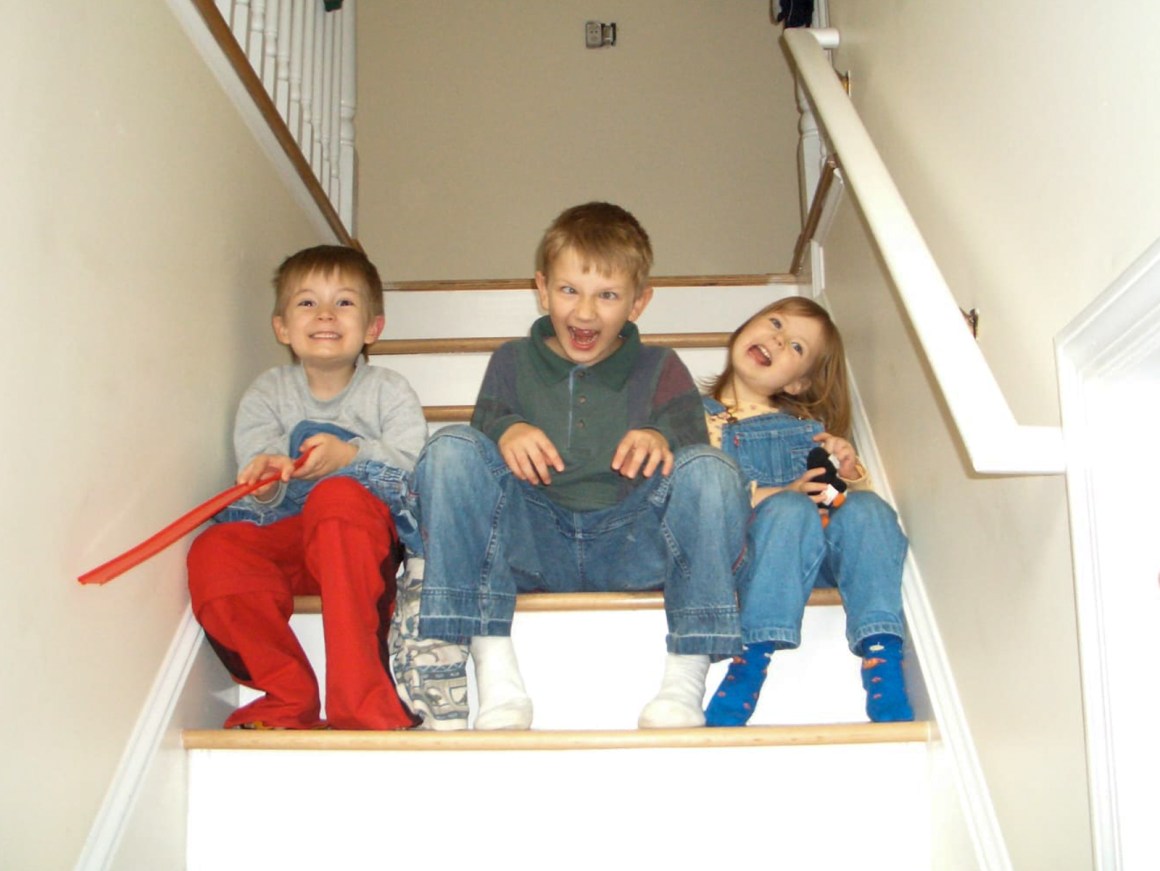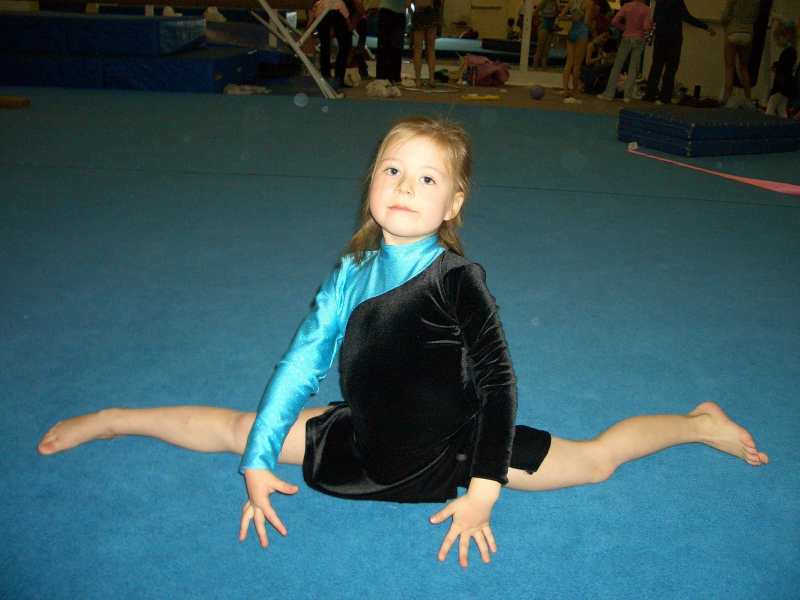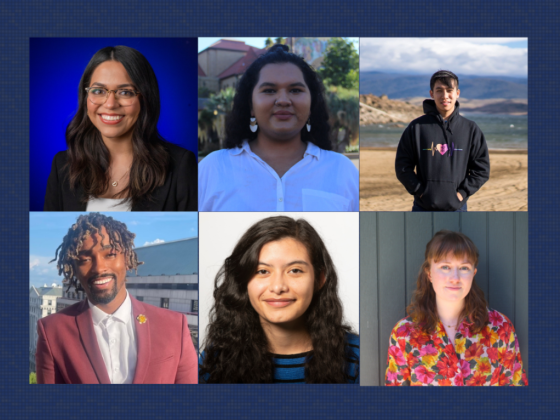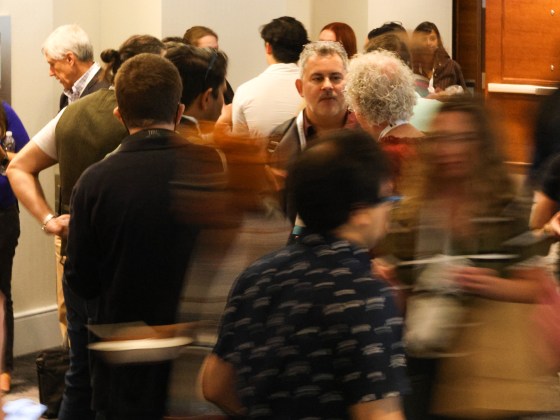One by one, I packed everything I needed for rhythmic gymnastics practice.
The wide ribbon I twirled into big circles. The shiny, purple rubber ball. The batons that I juggled while leaping across the matted springboard floor all fit perfectly into my bag.
Monday was my favorite day of the week — and gymnastics made me feel invincible.
When we arrived at the gym, my mother would meet the other mothers and hand them a plastic container with varenyky, (dumplings filled with potatoes and cabbage) and kiss them on the cheek. I joined the other children and started warming up around the benches where the mothers sit and brag about their daughters’ splits or whose daughter had the highest leaps that day.
Our teacher, who only spoke to us in Russian, commanded us to run around the floor four times and meet in the middle for splits. “выверните ноги!” (“turn out your legs!”) and “грудь вверх!” (chest up!”) were shouted at us and we perked up.
My team and I weren’t like the American girls, who warmed on the floor next to us. They wore their hair in buns so high their eyebrows seemed to dance with their hairline. We sported messy pigtails or braids that fell out halfway through practice.
Their leotards were high quality with fashionable patterns. Ours had holes, were handed down from other girls on the team and were all mismatched.
We were Americans, but we were the children of immigrants, living bi-culturally and speaking two languages.
This was one of those moments where I realized I truly wasn’t like other kids in my city. I couldn’t put my finger on it at the time, but even as I moved away from diverse Atlanta and into Forsyth County — a suburban, mostly-white county in North Georgia — I couldn’t ignore these differences.
During kindergarten, my classmates ate ham and cheese sandwiches and slurped Capri Suns. I brought Russian potato salad and cabbage-stuffed rolls.
I was confused about why they didn’t eat foods related to their family traditions. Weren’t all parents from another country? Wasn’t America just a jumble of immigrants – a true melting pot?
Then, I met Ariana. We lived in the same neighborhood and rode the same bus.
But she was like me, sort of. Her mother spoke Spanish and was from Peru.
We clicked.
The weird lunches, the strange accents and the random phone calls from someone speaking another language who claimed to have held you when you were “this big!” became a shared experience.
We understood the vague, blurry childhood of living two lives – one at home and one in the American public.
The more classmates I met, the more cultures and identities I was introduced to: Mexican-American, Filipino-American or Iranian-American. And of course, Russian-Kazakh-American.
My father was born in Odintsovo, Russia and my mother was born in Almaty, Kazakhstan. They met in a taxi cab in Almaty in 1992, fell in love and soon after moved in together in Moscow.
They took a chance on the American Dream in 1997. My oldest brother Stephen was born in Philadelphia, before they moved to Dunwoody, a suburb outside of Atlanta, where they settled and had my second oldest brother, Evan, and me, Elizabeth.

We never spoke Russian to our parents. We never learned it growing up. However, my parents only spoke Russian to us — with a mix of their broken English.
We slipped through the cracks of learning the language, mostly because the family friends that my parents had only spoke Russian amongst the adults and spoke English to the kids.
The older my siblings and I became, the more our parents’ English speaking skills developed – the more English they knew, the less Russian they spoke to us and the less we heard it in our home.
The culture of our extended family, our ancestors and our childhood was slowly erased from our lives.
For a split second in the timeline of the universe, I was fully, completely American.
Ariana and I finished elementary, middle and high school together and even ended up going to the same college, The University of Georgia. The more I watched her embrace her Peruvian heritage, the more inspired I felt to learn my own.
Unlike my brothers who still have yet to learn the language, I learned Russian by taking classes at my college, I cooked the food I grew up loving and I sang the songs my mother used to sing.
I found that instead of breaking myself down to fit in with others, I fit perfectly into the space between being Russian, Kazakh and American.
From this, I’ll share with you one piece of advice – lean into your culture, and embrace everything that makes up who you are, even if it takes you 20 years to start.
The world is bigger than you, and the whole world is waiting to hear what unique experiences you bring to the table.







You must be logged in to post a comment.